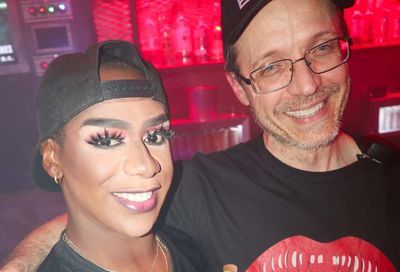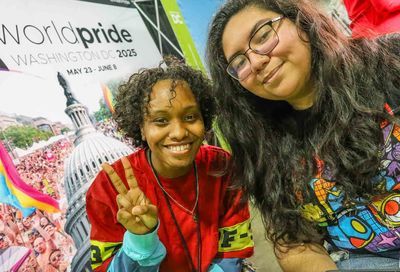The White Knight
The myth of sexual racism distracts from real discussions of race in the gay community
The ”sexual racism” argument used by some gay people of color in order to shame white males (and yes, it is always white males) into being attracted to them is a counter-productive waste of time and energy for all involved. Not only is it bred from an untreated sense of self-loathing from the gay people of color who obsess over it, but it also manages to completely corner the market on how race issues in the gay community are discussed.
While reading Daniel W.K. Lee’s op-ed piece about sexual racism (”Don’t Ask, Just Tell,” Sept. 23), it became quite clear to me that he is a classic example of a gay person of color suffering from the ”White Knight” syndrome.
Let me explain. When LGBT people of color come out, we come out into a landscape filled with images of successful, well-adjusted, fit, shiny, happy white people. Then, these same gay men and women of color take their cues from overwhelmingly white LGBT representations in both gay and mainstream media, and ignore the beauty within themselves and others like them in search of their very own “White Knight” ideal. You know him: He’s the same rich, fit, well-manicured and cultured white gay man who dominates representation in the mainstream LGBT landscape from TV to film to magazines, and to some gay people of color their life simply isn’t complete until they’ve found one of their very own to love them in a way that they haven’t yet learned to love themselves.
Trust me, I know, and after bringing myself out of that particular shame spiral years ago, I’m here to give my fellow gay people hung up on the ”sexual racism” thing a bit of tough love.
Today, thank God, with black LGBT media and Noah’s Arc, my black, gay self has no self-confidence issues or problems finding a date or a guy of any color. I love men of all colors, but I’m now secure enough in myself, my looks, and this beautiful chocolate skin I’m wrapped in not to feel the need to shame or challenge anyone who may not be able to appreciate it. We’re all bound to media images that shape our own desires and sense of self. In those images and their purveyors is where the blame ultimately lies, and focusing energy and resources into diversifying them is ultimately more beneficial then shaming those who depend on them to define what and who they’re attracted to.
The gay community has some very real racial issues, but this conversation is too complex to be relegated strictly to sexual biases. If we’re going to talk about race, let’s talk about our multimedia images that continually marginalize gay people of color and place the straight-acting/looking white male as the height of physical, social and emotional attractiveness. Let’s talk about the fact that out of 36 gay characters on broadcast television in the 2010-2011 season, only six are people of color, and a grand total of zero are African-American. Let’s talk about the voices in our community with real power who use their position to fan the flames of racial hatred from online and multimedia bully pulpits. Let’s talk about a room full of gay Republicans laughing at ”humor” from Ann Coulter, who with her “blacks wish they were oppressed like you” remarks managed to achieve the dubious feat of being both racist and homophobic. As you can see, there is much there to discuss.
But gay people of color, please, stop complaining about so-called ”sexual racism” because that cute white guy at the bar doesn’t want to take you home. He probably watches the same shows and reads the same magazines as you do.
Rob Smith is an openly gay Iraq War veteran, writer and lecturer. He can be reached at robsmithonline.com and via Twitter @robsmithonline.
Support Metro Weekly’s Journalism
These are challenging times for news organizations. And yet it’s crucial we stay active and provide vital resources and information to both our local readers and the world. So won’t you please take a moment and consider supporting Metro Weekly with a membership? For as little as $5 a month, you can help ensure Metro Weekly magazine and MetroWeekly.com remain free, viable resources as we provide the best, most diverse, culturally-resonant LGBTQ coverage in both the D.C. region and around the world. Memberships come with exclusive perks and discounts, your own personal digital delivery of each week’s magazine (and an archive), access to our Member's Lounge when it launches this fall, and exclusive members-only items like Metro Weekly Membership Mugs and Tote Bags! Check out all our membership levels here and please join us today!

















